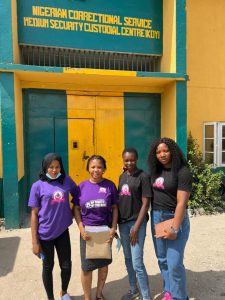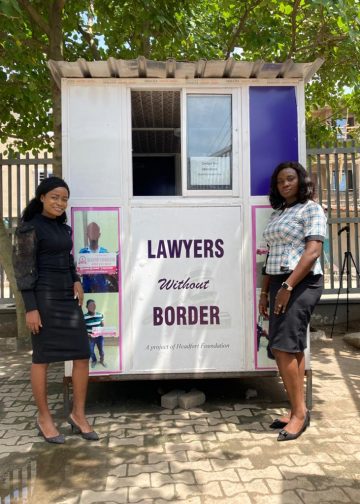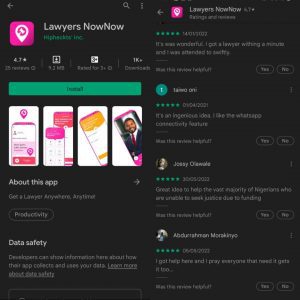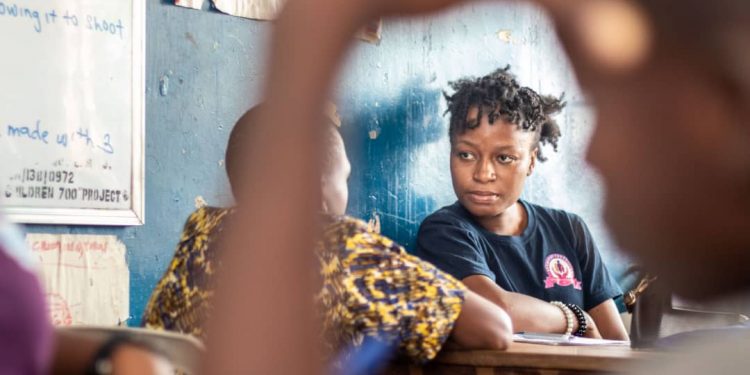The birds have gone to sleep and the darkness has crept in but the fire that burnt down the Toyota Camry 2008 was the only source of light that shone brightly as Benjamin Daniel Chima watched helplessly amidst agony, pains, and frustrations.
Daniel, who worked as a driver, attached to the HR section, of one of the commercial banks in Nigeria, was about to close for the day and headed to Lagos Island to park the car when he noticed smoke coming out of the car bonnet. Unconcerned about the dangers he could be exposed to on the Third Mainland bridge at the expense of saving the vehicle around 12:05 am, Daniel parked the car to check the cause of the smoke.
After parking the car and opening the bonnet, Daniel noticed that there was a fire already burning. Rushed to pick a fire extinguisher in the boot, but it was nowhere to be found. Helpless and confused, Daniel watched the car burn after several attempts to quench the fire with a few sachets of pure water in the car.
Three months later, despite that all investigations exonerated Daniel and proved his innocence of any act of negligence that could have made the car catch fire, Daniel was locked up in police custody for four days, accused that he sold the car, lied that it was burnt and presented the carcass of a different car instead. After paying the sum of thirty thousand naira to secure his release from police custody, Daniel had been sacked from work without any benefit and threatened to be jailed or pay 15 million naira for the car which got burnt.

Daniel knew he didn’t commit any crime, nor did he have 15 million naira to pay for a car that he believed does not worth 1 million naira, and his four days of experience in the police custody was brutalizing enough than to be desirous of serving any term in a correctional facility.
Congested correctional facilities and innocent inmates
A correctional facility houses convicts who are serving jail terms as well as suspects who are awaiting trial and in some cases, they are people who are unable to perfect their bail conditions.
As of 2016, the Nigeria Bureau of Statistics data on Prison Population highlighted that Nigeria’s correctional centres have the capacity to hold 50,803 inmates but they currently hold 68,686 inmates. Out of the 68,686 inmates at the facility, Dataphyte showed that 50,822 are awaiting trial. That equates to roughly 73% of the total. While only 19,234 inmates have been convicted, accounting for 27% of the total. Thus, at least 7 out of 10 inmates in Nigerian correctional centers are serving terms without being convicted.
The National Bureau of Statistics (NBS) identified flaws in Nigeria’s criminal justice system with proceedings often going on for years without conclusion, as a major contributing factor to people serving jail terms without conviction.
Corroborating this, Barr Itunuoluwa Awolu of Headfort Foundation explained that “some people are remanded while they wait to perfect their bail conditions and in other cases, some are waiting for the advice of the Director of Public Prosecution, and this could take a while.
“In other situations, some people do not have the resources to get a legal practitioner and there is no one to challenge whatever the prosecutor says in court and the case goes on endlessly.”
Awolu mentioned that some people have served jail terms without being convicted for crimes that are deserving of community exercise but such cases would drag for a while and victims would remain in custody.
Headfort Foundation providing freedom to wrongly incarcerated inmates
Headfort Foundation, a non-governmental organization in Nigeria, provides free legal services to indigent persons especially inmates across Nigerian correctional facilities, and has helped to secure the release of almost 300 wrongly incarcerated inmates and attended to over 1000 cases since its three years of existence.
Speaking with Oluyemi Orija, the Founder and Executive Director of Headfort Foundation, the foundation was set up as part of efforts to ameliorate the challenges of unjust convictions and long pretrial detentions that indigent persons experience because they lack legal representation.
The organization whose management is 100% female lawyers work tirelessly to prevent innocent suspects from going to prison and also perfects bail bonds for inmates.

To achieve this, the female lawyers conduct routine visits to correctional facilities, collect cases of individuals who are awaiting trial, and assess cases that they can work on for free.
“There are three major determinants for the cases that we take up. It must be a misdemeanor, not a capital offense, the proximity of the court where the case is being heard because we don’t take cases in Epe and Badagry, and we also establish that the inmate is indigent through different questions that we use to evaluate them” Orija added.

With the number of cases increasing during every visit and the difficulty to go to the facilities during COVID-19, the Headfort team set up offices (lawyers without borders) on court premises, to provide easy access to inmates who are brought to court.
“During COVID-19 lockdown, there was no opportunity to go to correctional centres, there was limited access and it became difficult to assist indigent victims. We then applied to the Chief Judge of Lagos State, to secure approval to set up offices on court premises, so that inmates can have direct access to us. Luckily, the approval was granted and we have expanded to Ogun State as well,” Orija explained.

Using technology to break boundaries
Benjamin Daniel Chima who was faced with the threat of being jailed or paying 15 million naira for the burnt Toyota Camry 2008, would have joined the list of inmates awaiting trial in a correctional facility, but for the assistance of Headfort Foundation through the Lawyers NowNow mobile application.
In April 2021, the Headfort Foundation launched a mobile application with the aim of using technology to break the physical barriers that people may encounter to access justice.
“We developed a mobile app which connects pro bono lawyers to victims of police brutality, harassment, extortion etc., and through the app, users can also access free legal advice,” Orija explained.
Daniel while searching for a solution to his predicament came in contact with the Lawyers NowNow app and through the intervention of Headfort Foundation, his charges were withdrawn and his organization paid his entitlements.
“After I left Police custody, I was searching for every opportunity I could get to ensure I do not pay for a crime I did not commit. I searched Twitter and came across the Lawyers NowNow app, I downloaded it and was able to request legal support.
“After ascertaining the real situation, the lawyer that attended to my case wrote a letter to the bank to demand that the charges against me be withdrawn because it was an accident that occurred while I was carrying out my official duty. He also requested that my severance benefits be paid to me because my appointment had been terminated.
“All of this happened in January 2022 and I am so delighted that the Headfort Foundation was able to help me. Otherwise, I don’t know if I would have been in prison now,” Daniel explained.
Orija, who shared that 291 cases have been successfully handled through the mobile application since it was launched in April 2021, noted that the major impact has been the easy connection between victims and pro bono lawyers.
“Between April 2021 when the app was launched and May 2022, we have attended to 291 cases successfully on the app only and it has about 2000 downloads. The app has made it easier for people to access free legal support wherever they are, without which they would be in prison or it could cost them an arm and a leg,” Orija added.

Technology cannot solve it all
The goal of Headfort Foundation is to ensure the decongestion of correctional facilities by reducing the population of those who are wrongly arrested and awaiting trials in the facilities. However, there are limitations to what Headfort Foundation can achieve due to inadequate funding to support its pro bono legal services and the strategy used to collect cases.
Sharing some of the factors that are limiting the many exploits that Headfort envisions, Orija explained that “Headfort started with visitation to correction centres, after which we set up mobile offices in some courts. We noticed that these are not sufficient and we decided to launch the Lawyers NowNow app so that people can be wherever they are and access legal support.
“However, we have found out that those who truly need this service are still unable to because of inadequate access to technology in some locations. But we are proposing to set up a USSD service which would be free for people to request legal support from us. As such, we would eliminate every challenge that anyone could encounter in accessing free legal services from Headfort,” Orija added.
Orija also explained that the numerous bottlenecks within the justice system oftentimes frustrate the organization’s efforts in decongesting the correctional facilities, but stressed that continuous advocacy and engagement with relevant stakeholders within the judicial sector would address the systemic and age-long issues.
This story has been made possible by Nigeria Health Watch with support from the Solutions Journalism Network, a nonprofit organization dedicated to rigorous and compelling reporting about responses to social problems.

